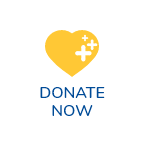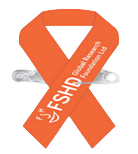Chairman Bill Moss AO talks with Alan Jones as the Foundation is announced as the Charity of the Year in the Australian Charity Awards 2017
Alan Jones:
I often say it’s important to give credit where it’s due. There are a million charities these days, and it’s important to point out organisations worthy of your charity dollar. What’s called the FSHD Global Research Foundation was this week named Australian Charity of the Year. Australian Charity of the Year. This is as good as it gets. The FSHD stands for Facioscapulohumeral muscular dystrophy. It’s a terrible, highly complex, progressive, muscle wasting disease. One man who knows about this all too well is a man I’ve known for a long time but an eminent Australian businessman and a very very generous man, Mr Bill Moss. He’s the founder and Chair of FSHD Global Research Foundation and a sufferer of this disease. He’s on the line from Darwin, Bill are you up there getting a bit of heat?
Bill Moss AO:
Yes Alan, it’s the best place to be in Australia at this time of the year. Beautiful weather.
Alan Jones:
That’s wonderful. This is something that has overtaken you, you’re a very very successful businessman and a wonderful philanthropist with very significant expertise. 23 years this man spent as a Senior Executive and Executive Director with the Macquarie Group while it managed $30 billion in investment around the world, a great success story, but, when did you contract this?
Bill Moss AO:
Alan, I had this disease from birth, but I first noticed it really when I was in my early teens, I suddenly struggled to run, I struggled to walk up stairs, I got tired very early, never understood what it was, but in retrospect I knew what it was when I was diagnosed when I was around 28.
Alan Jones:
And your life has been confined to a wheelchair, with your body wasting away beneath you.
Bill Moss AO:
Yeah Alan, you slowly lose the use of your body one little piece at a time. So there’s always something every day, or every month that you can’t do that you could do the previous day or the previous month. And then, one day you can’t brush your teeth, one day you can’t comb your hair, the next day you’ll struggle to eat and then you can’t use a knife or you can’t use a fork and then ultimately you’ll fall and you’ll break your bones.
Alan Jones:
You never, this man Bill Moss, you never complain. He never ever complains. Marvelous human being, but, to put it really simply, people are thinking, well ask him this question or ask him that question. Well, I’ll ask him one simple question, I mean, for example, you can’t roll over in bed?
Bill Moss AO:
No that’s right.
Alan Jones:
And what about scratching yourself when you get itchy?
Bill Moss AO:
I can’t. I can’t scratch myself no. Nothing worse than getting stung by a mosquito, and you can feel it, but you can’t get to the mosquito. Nothing worse.
Alan Jones:
And no cure?
Bill Moss AO:
No cure. Although, we’ve come a long way Alan, when we started this Foundation there was no medical research in Australia. There was no government funding at all. There’s still no government funding. There was very little research in the world, and I decided that we were going to change the world. And we have. This is our 10th year we’re going into now and outside the US government funded agencies, we are the largest funder of medical research for this disease in the world.
Alan Jones:
Amazing. Australian Charity of the Year. The FSHD Global Research Foundation. Just tell me this, is this genetic?
Bill Moss AO:
Alan, it’s genetic, but it occurs randomly in about 50% of the cases. This is one of the conundrums for this disease. Yes, you can inherit it, you can actually have identical twins that have inherited the gene, and at the age of 20, one will be in a wheelchair and one can be playing tennis.
Alan Jones:
Amazing isn’t it.
Bill Moss AO:
It’s incredible.
Alan Jones:
Why do you think, I mean you’re a very bright man, why do you think a cure has proven to be so hard to find? Is it because not enough money has been spent into research?
Bill Moss AO:
Not enough money, but, in fact, look, to be honest Alan, in a lot of these diseases, it doesn’t take a lot of money, with $10 or $20 million you can make a huge difference and you can encourage scientists. There’s a lot of scientists out there, you know we found at the start, that didn’t know about this disease, and we had to go to them, and we had to tell them that we would support them. We actually went around the world and picked the best scientists that we thought, and we encouraged them, we funded them, we then encouraged Australian scientists to collaborate with them to bring the expertise here as well, which has worked very well. We had to get out and find the scientists and train them, not in the knowledge of what they were doing, but train them in the understanding that this was a disease that was worth researching and that there was money to assist them, and that’s worked very well.
Alan Jones:
You’ve just used some words there. Bill said, “you’ve gotta get out and find the scientists”, but the reality is you can’t get out anywhere unassisted. You can’t get into bed, out of the bed, into the chair, out of the chair, into the shower, out of the shower, onto the toilet off the toilet, unassisted, can you?
Bill Moss AO:
No, I can’t. But I’m still working full time.
Alan Jones:
I know you are, which is amazing because the brain is good, the brain is good. I want to congratulate you. You’re a wonderful man. I just wanted to congratulate you. The Australian Charity of the Year. A lot of Bill Moss’ money has gone into this. The FSHD Global Research Foundation, and for more information and to donate, you just go to www.fshdglobal.org. Lovely to talk to you Bill catch up with you on return.
To listen to Alan Jones Full Show, please visit http://www.4bc.com.au/podcast/alan-jones-full-show-august-17th/




